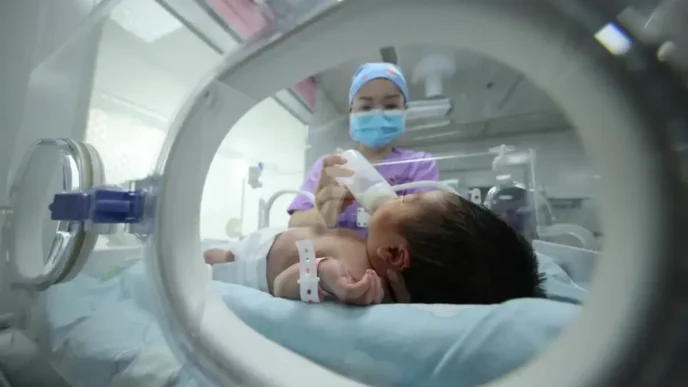In a landmark Budget speech marking Singapore’s 60th year of independence, Prime Minister Lawrence Wong unveiled a sweeping package of financial handouts and cultural initiatives worth over $3 billion, aimed at recognising the contributions of Singaporeans and fostering national unity. The centrepiece of the SG60 celebrations includes one-time vouchers for adults, tax rebates, baby gifts, and credits to promote arts, sports, and heritage, reflecting the government’s commitment to shared prosperity and social cohesion in an increasingly polarised world.
The announcement, delivered on 18 February during the annual Budget address, underscores Singapore’s remarkable journey over six decades—from a fledgling nation to a global economic powerhouse. PM Wong, who also serves as Finance Minister, framed the initiatives as a tribute to the collective efforts of Singaporeans across generations, emphasising the need to safeguard unity as a “precious asset” amid global challenges.
SG60 Vouchers: A $2 Billion Boost for Adults
At the heart of the SG60 package is a one-time handout in the form of vouchers for Singaporean adults. Approximately three million individuals will benefit, with those aged 21 to 59 receiving $600 each, while seniors aged 60 and above will get $800. The Finance Ministry confirmed that seniors will be prioritised in claiming the vouchers starting in July 2025, followed by other eligible adults.
Modelled on the existing Community Development Council (CDC) vouchers, the SG60 vouchers can be claimed digitally via the RedeemSG platform using Singpass. Half of the voucher value is designated for use at participating supermarkets, while the remainder can be spent at heartland merchants and hawker stalls, supporting local businesses. The initiative, costing the government an estimated $2.02 billion, aims to distribute the benefits of national progress directly into the hands of citizens.
PM Wong highlighted the symbolic importance of the vouchers, stating, “Singaporeans from across different generations and all walks of life have played a vital role in getting us to SG60” (“The Straits Times,” 18 February 2025). He noted that the country’s rapid development over a “short time” of 60 years has forged a stronger national identity, built on shared experiences and aspirations.
This voucher scheme is complemented by an additional tranche of CDC vouchers worth $800 per Singaporean household, to be disbursed in May 2025 and January 2026. Costing $1.06 billion, this brings the total value of handouts for individuals and households in the upcoming financial year to over $3 billion—a significant investment in public welfare.
Tax Relief and Baby Gifts: Broadening the Benefits
Beyond vouchers, the SG60 package includes targeted financial relief for middle-income earners through a 60 per cent rebate on personal income tax for income earned in 2024, capped at $200. This measure, PM Wong explained, will primarily benefit tax-paying resident individuals in the middle-income bracket, easing financial pressures amid rising global costs.
For families, the government has introduced an SG60 baby gift for all Singaporean babies born in 2025. While specifics remain forthcoming—set to be detailed during the Prime Minister’s Office budget debate—Second Minister for Finance Indranee Rajah announced the initiative as a gesture of hope for the nation’s future generations. These measures reflect a dual focus on immediate relief and long-term demographic support, addressing Singapore’s ageing population and low birth rates.
Cultural Core and Community Bonds: Investing in Unity
A distinctive feature of the SG60 Budget is its emphasis on cultural and community initiatives, which PM Wong described as critical to maintaining social cohesion. Citing the erosion of trust and deepening divisions in other societies, he urged Singaporeans to remain steadfast in nurturing unity. “In this Budget, we will invest more in strengthening our cultural core and community bonds,” he affirmed (“The Straits Times,” 18 February 2025).
One such initiative is the SG Culture Pass, which will provide every Singaporean aged 18 and above with $100 in credits to access local arts and heritage activities. Available from 1 September 2025 and valid until the end of 2028, these credits can be used for tickets to performances, exhibitions, learning tours, and participatory workshops. The programme aims to deepen appreciation for Singapore’s cultural diversity and creative industries, reinforcing a shared national identity.
Additionally, the government will support hawker culture—a cornerstone of Singaporean heritage—with $600 in one-time rental assistance for each stall in government-managed or appointed hawker centres. Timed to coincide with the fifth anniversary of Singapore’s hawker culture being inscribed on UNESCO’s Representative List of the Intangible Cultural Heritage of Humanity, this initiative acknowledges the role of hawker centres as communal spaces. Over the next 20 to 30 years, up to $1 billion will be allocated to upgrade ageing hawker centres and construct new ones, with further details to be announced by the Ministry for Sustainability and the Environment.
Sports and Active Living: Building Solidarity
To promote broad-based participation in sports, the government will provide a one-off $100 top-up in ActiveSG credits for citizens and permanent residents in June 2025. This complements plans to build new sports facilities in Toa Payoh, Punggol, and Clementi, as well as upgrade existing ones in Pasir Ris, Queenstown, and Hougang. PM Wong linked these efforts to the spirit of solidarity that saw Singapore through challenges like the Covid-19 pandemic, calling for continued collective progress as a nation.
Analysis: A Budget for Unity in Uncertain Times
The SG60 Budget is more than a financial package; it is a statement of intent. At a time when global economic uncertainties and geopolitical tensions loom large, Singapore’s government is doubling down on policies that prioritise social cohesion and equitable growth. The $3 billion in handouts and credits is a substantial commitment, representing a direct transfer of national wealth to citizens while stimulating local economies through targeted spending at supermarkets, heartland businesses, and hawker stalls.
Economically, the voucher schemes and tax rebates are poised to provide immediate relief, particularly for middle- and lower-income groups grappling with inflation and cost-of-living pressures. If implemented effectively, these measures may boost consumer spending and support small businesses, though their long-term impact on economic inequality remains to be seen. Analysts note that while the $2.02 billion voucher programme is significant, it must be paired with structural reforms to address systemic challenges like wage stagnation and housing affordability—issues that were not prominently addressed in the Budget speech.
Politically, the emphasis on cultural and community initiatives signals a proactive approach to nation-building. Singapore’s multi-ethnic, multi-religious society has long been a model of harmony, but maintaining this balance requires constant effort. The SG Culture Pass and investments in hawker culture are strategic moves to reinforce shared values and experiences, countering the risk of polarisation that PM Wong highlighted. If successful, these initiatives could strengthen social trust, though their effectiveness will depend on public engagement and accessibility across diverse demographics.
Speculatively, the focus on sports and active living may also yield intangible benefits, fostering a sense of collective resilience. If new facilities and ActiveSG credits encourage broader participation, they could enhance community bonds, particularly among youth. However, as with any large-scale public investment, there is no guarantee of uniform uptake, and the government may need to monitor usage patterns to ensure equitable impact.
A Milestone with Global Resonance
Singapore’s SG60 celebrations come at a pivotal moment. As a small nation-state in a volatile region, its ability to balance economic pragmatism with social unity offers lessons for others. The Budget’s blend of financial support and cultural investment reflects a nuanced understanding of what sustains a society—material security paired with a sense of belonging.
PM Wong’s call to “help our fellow citizens succeed together” encapsulates the ethos of SG60. While the immediate benefits of vouchers and rebates will be felt in wallets and local markets, the long-term success of this Budget will hinge on whether it can deepen the intangible ties that bind Singaporeans. For now, as the nation marks 60 years of independence, the government has laid out a bold vision to ensure that progress is not just measured in dollars, but in the strength of its people’s shared hopes and dreams.














